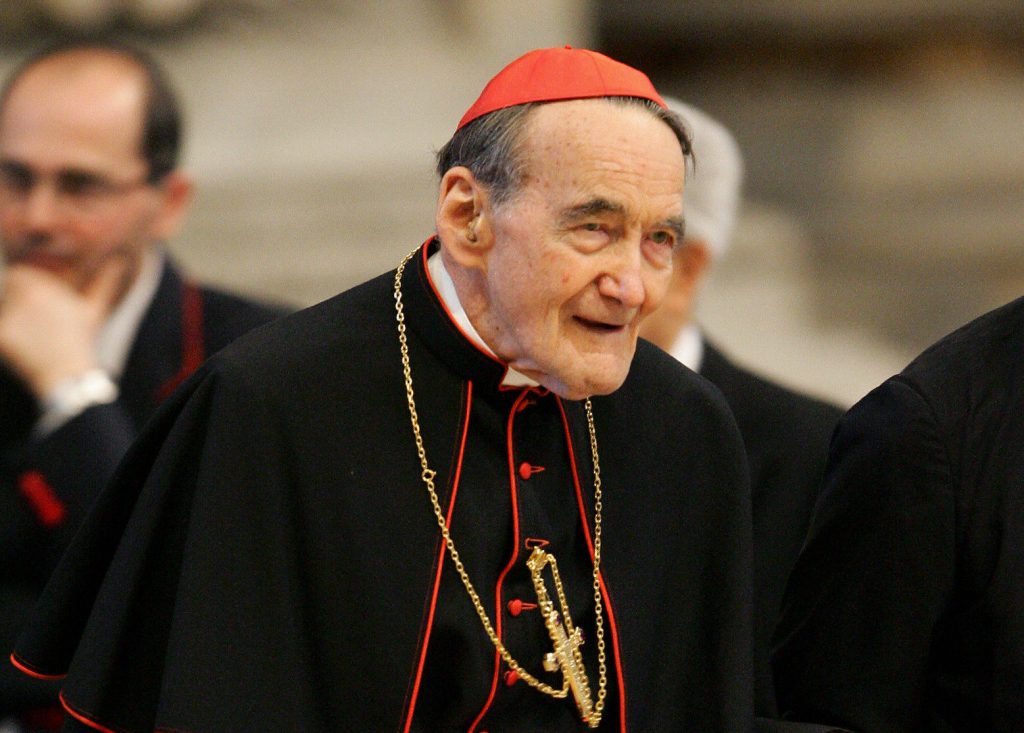“I will strike the shepherd and the sheep of the flock will be dispersed” (Matthew 26:31).
The shepherds have been struck.
The trifecta of scandals that have descended like the plagues of Egypt upon our Church have all targeted the shepherds.
- rn
-
Then-Cardinal Theodore McCarrick found to have credible allegations against him of sexual abuse and inappropriate behavior, raising questions of how he was ever appointed cardinal archbishop of Washington, D.C.
-
The Pennsylvania grand jury reports scathing descriptions of rape and abuse, and more devastating allegations of cover-up and institutional self-protection by bishops.
-
And Archbishop Carlo Maria Viganó, who penned two letters filled with accusations, alleging conspiracies at the top of the Church and calling on Pope Francis to resign.
rn
rn
rn
rn
Whether true or not, all of these charges are explosive. They have caused many to question the leadership of the Church. The questioning often falls along predictably ideological lines, dragging in the fractures and hostilities of our battered political world.
Worse still for a Church ordered around a leadership hierarchy, some priests are less than ardent in the defense of their bishops. Some bishops are less than ardent in defense of their pope. And the laity following these issues closely are even more divided and distrusting.
There is talk of schism, a fracturing of the faithful that is horrible to contemplate yet wielded almost casually as a threat.
The shepherds have been struck, and the sheep are scattering.
In this vacuum of leadership, the mob is storming the chancery. Some are advocating for sweeping investigations. Others are calling for wholesale changes in doctrine and practice — married priests, women priests, election of bishops.
Some are calling for financial boycotts of parish or diocesan donations. Others are even calling for the resignation of the pope, as if he is a politician who had lost the favor of his voters.
About the only thing all can agree on is that these are dark times. But the excess of fury is itself a warning. And the warning comes from the Epistle of St. James: “Everyone should be quick to hear, slow to speak, slow to wrath, for the wrath of man does not accomplish the righteousness of God” (James 1:19-20).
That those who have been victimized are often angry is completely understandable. What I find curious, however, is how little attention is being focused on the victims themselves and how best to aid them. Instead, the wrath is focused on Church structures, Church politics and Church teachings.
It is time to be “quick to hear.” We are in need of wise voices now, and there are too few being raised. Yet we have been through this before. In 2002 the shock of the Boston scandals and subsequent revelations provoked a similar outpouring of wrath and similar cries for reform.
Two years after that watershed moment, Cardinal Avery Dulles, now deceased, gave a powerful lecture called “True and False Reform.” It bears rereading.
What he experienced after 2002 sounds very similar to what we are experiencing now. “The prestige of the bishops is today at a new low. In some cases, there is alienation between bishops and priests. Laity are in some places organizing against bishops and seeking to apply fiscal pressures and negative publicity as means to bring about what they see as reforms.”
Dulles warns, however: “The Church cannot be made to function like a political community, with adversarial parties contending for supremacy.”
Dulles identifies true renewal with a “return to the principles of Catholicism.” For Dulles, calls for true reform “will respect the Church’s style of worship and pastoral life,” “adhere to the fullness of Catholic doctrine,” and “respect the divinely given structures of the Church.”
But it is not enough to simply defend the “principles of Catholicism.” Dulles has other criteria that speak to our moment.
“A reform that is Catholic in spirit will seek to maintain communion with the whole body of the Church and will avoid anything savoring of schism or factionalism,” he warns. And he cautions that “reformers will have to exercise the virtue of patience, often accepting delays.”
Dulles also questions whether structural reforms are ever the complete answer, noting that “no social reorganization will be able to overcome the human tendency to sin and error.”
Dulles in 2004 said that the Church in the United States “stands in urgent need of far-reaching intellectual, spiritual and moral regeneration.” And he does not lay the blame solely at the feet of priests and bishops: “The immoral behavior of Catholics, both lay and clergy, is a cause of scandal and defections.” He cited not only sexual abuse, but sex outside of marriage, abortion, divorce, domestic violence, financial scandals, and more.
In the 14 years since Dulles delivered this lecture, we have instituted many safeguards and done a better job of protecting children. The wise cardinal would be justified in asking us, however, how far we have really progressed in renewing our Church.
Greg Erlandson is director and editor-in-chief of Catholic News Service.
Start your day with Always Forward, our award-winning e-newsletter. Get this smart, handpicked selection of the day’s top news, analysis and opinion, delivered to your inbox. Sign up absolutely free today!

